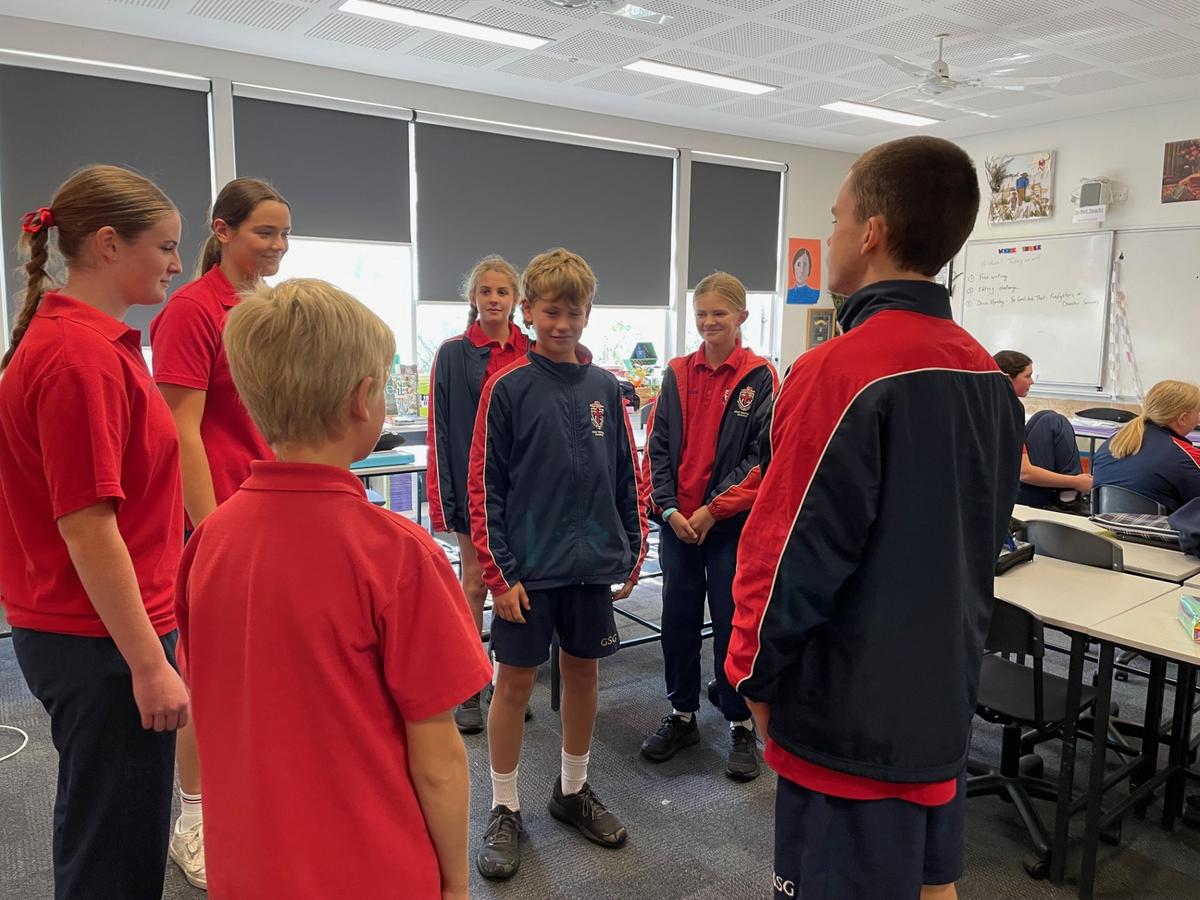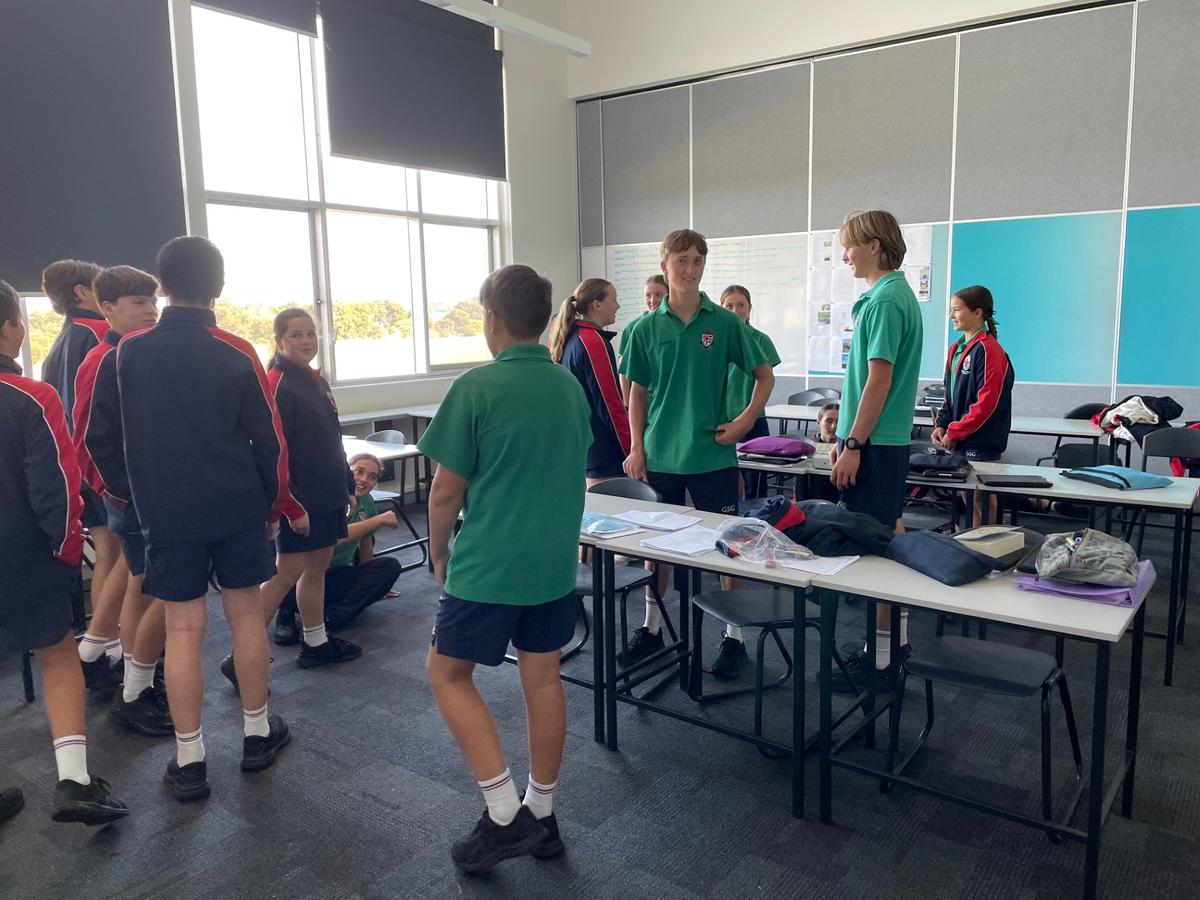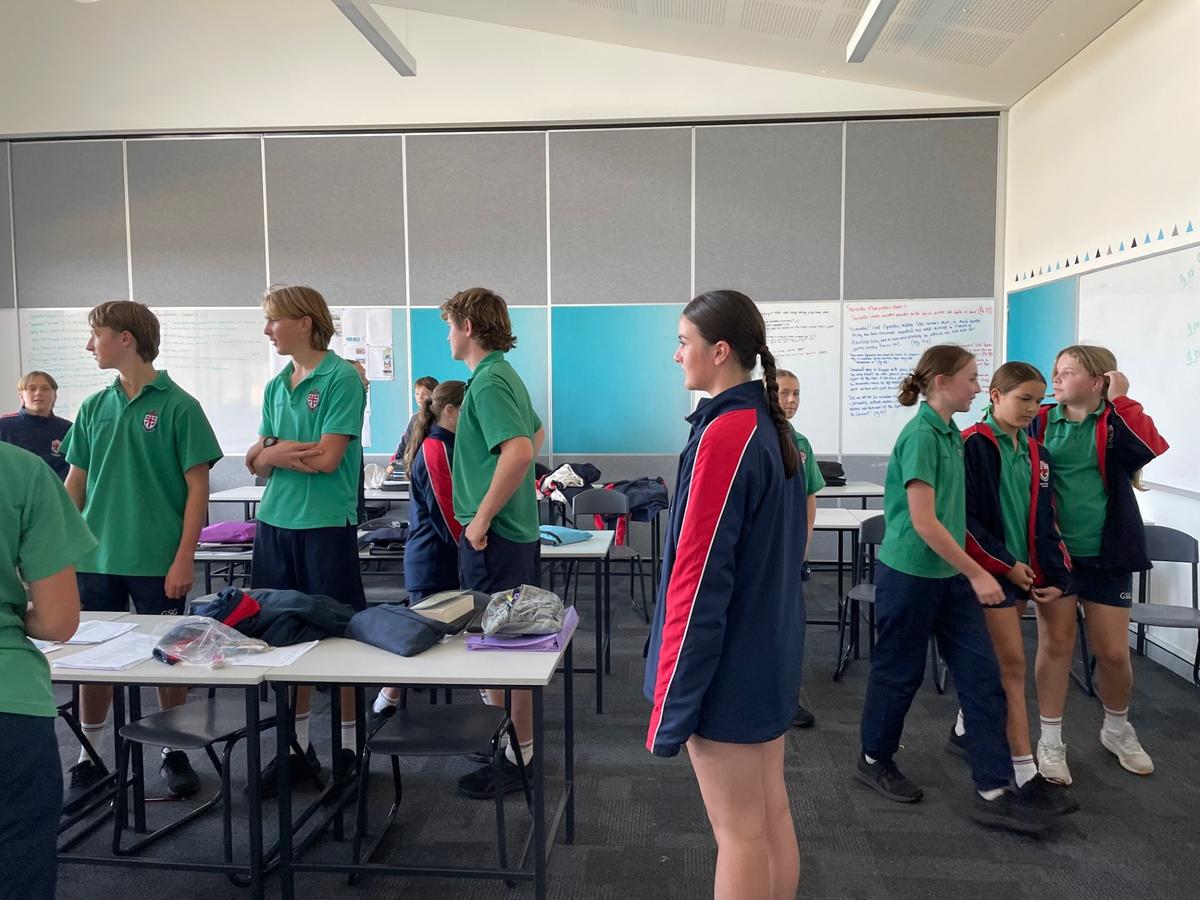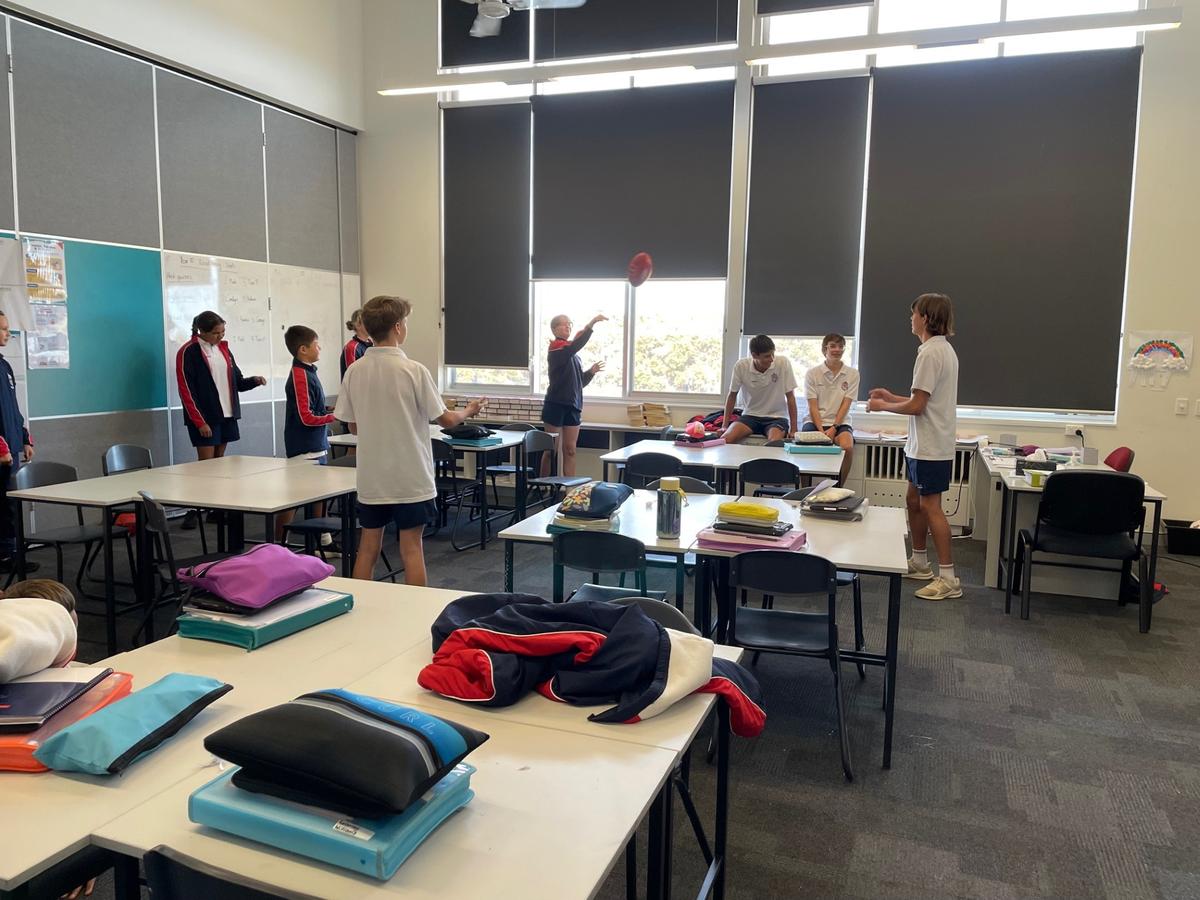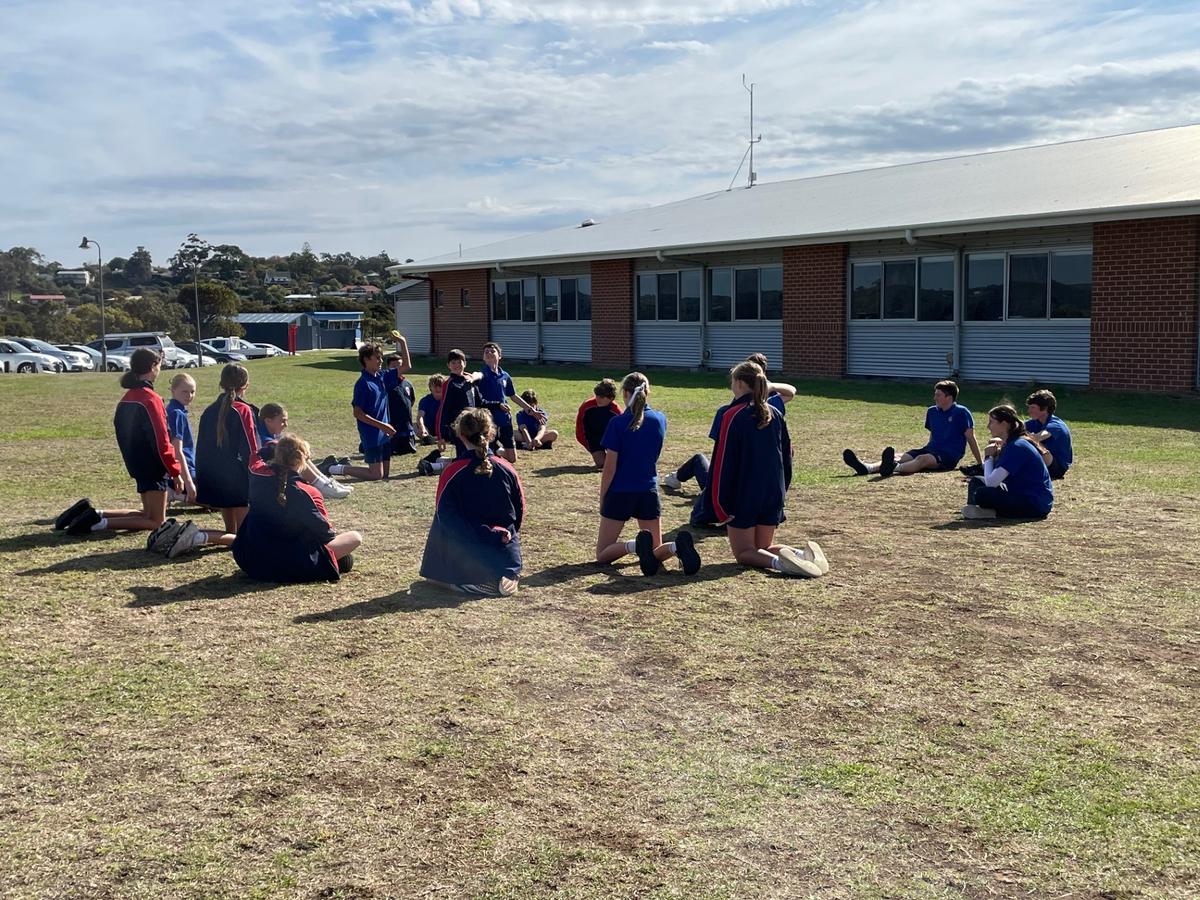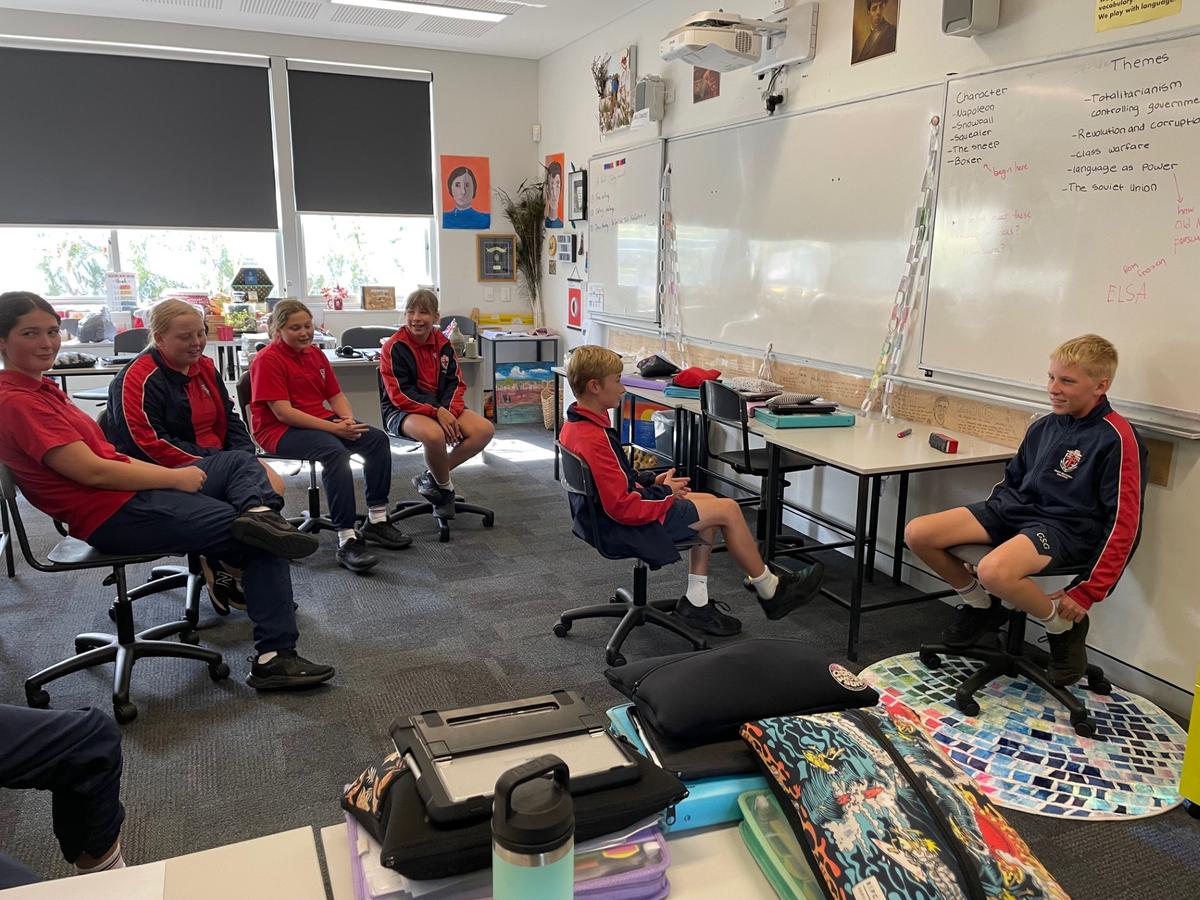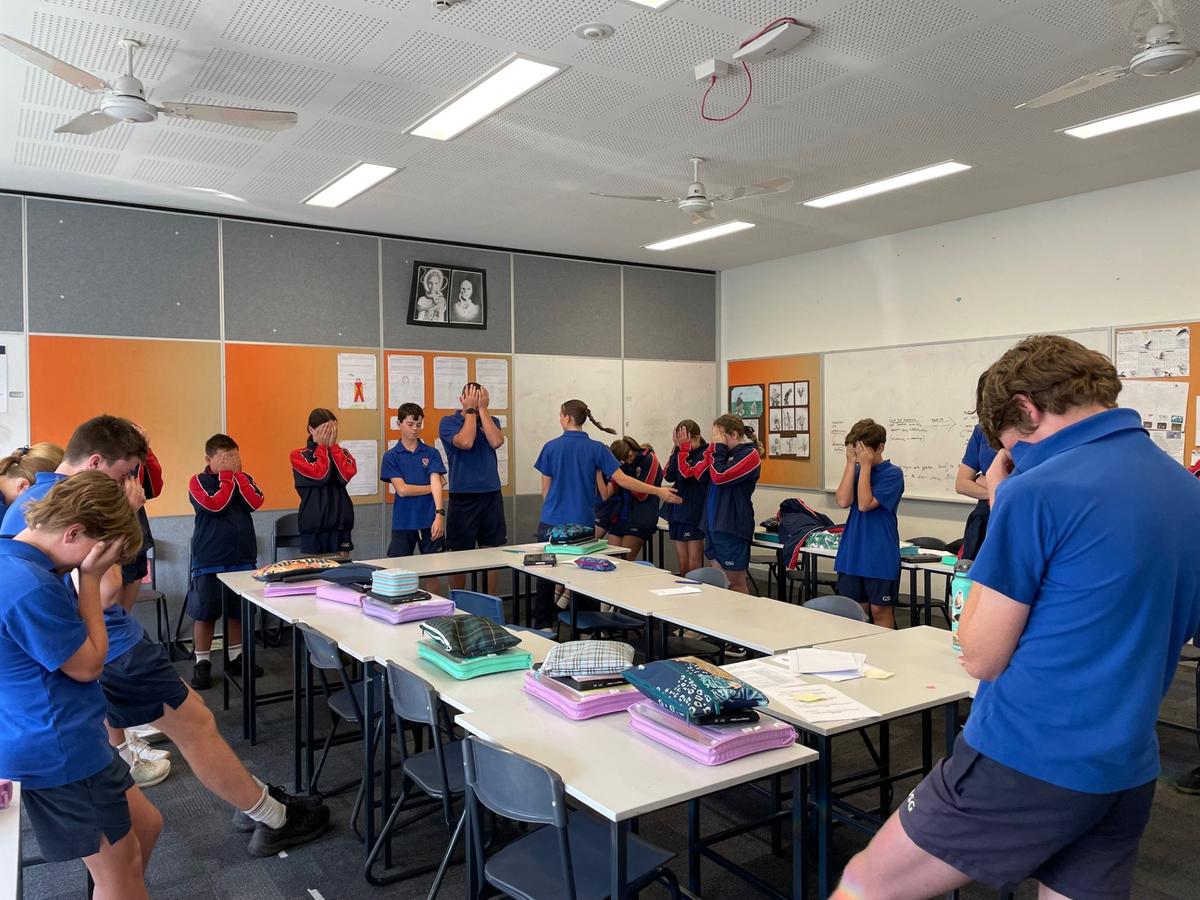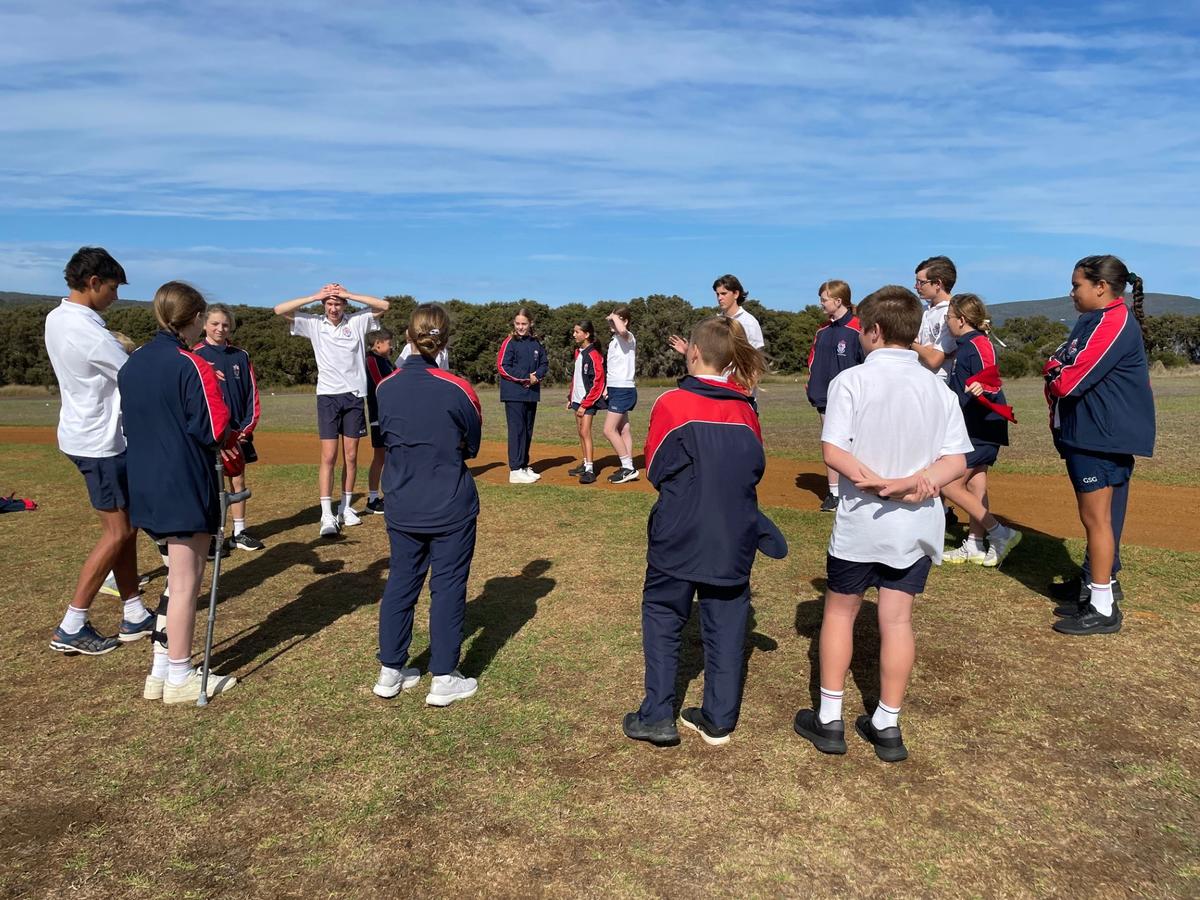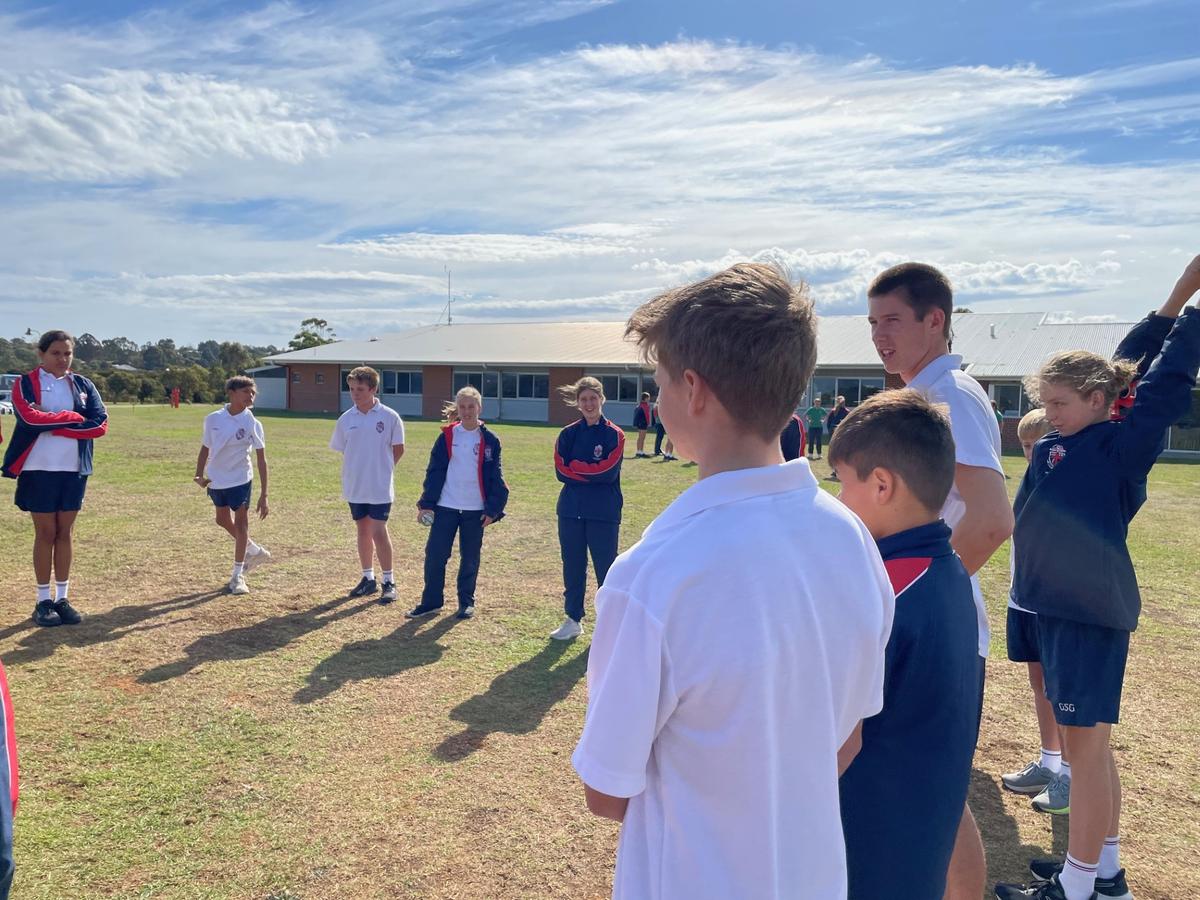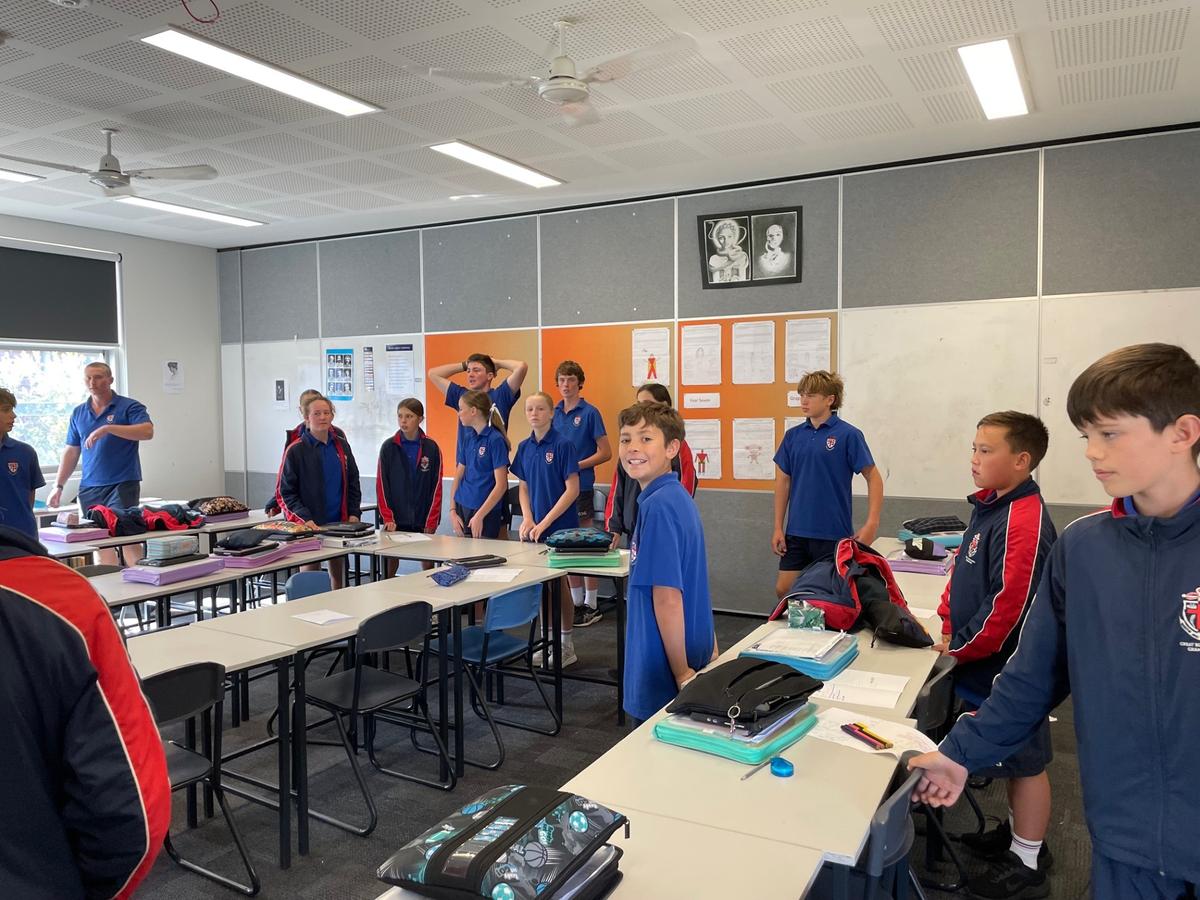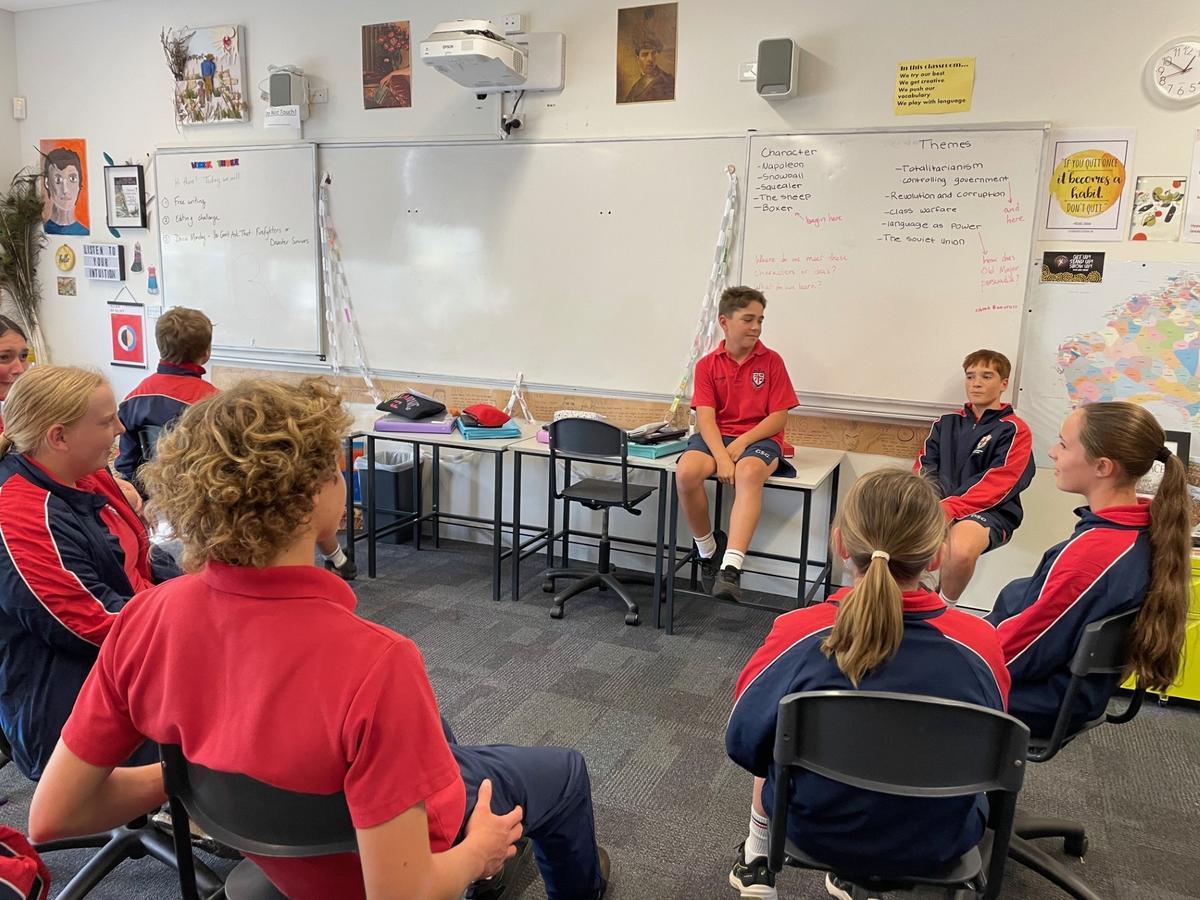Secondary School
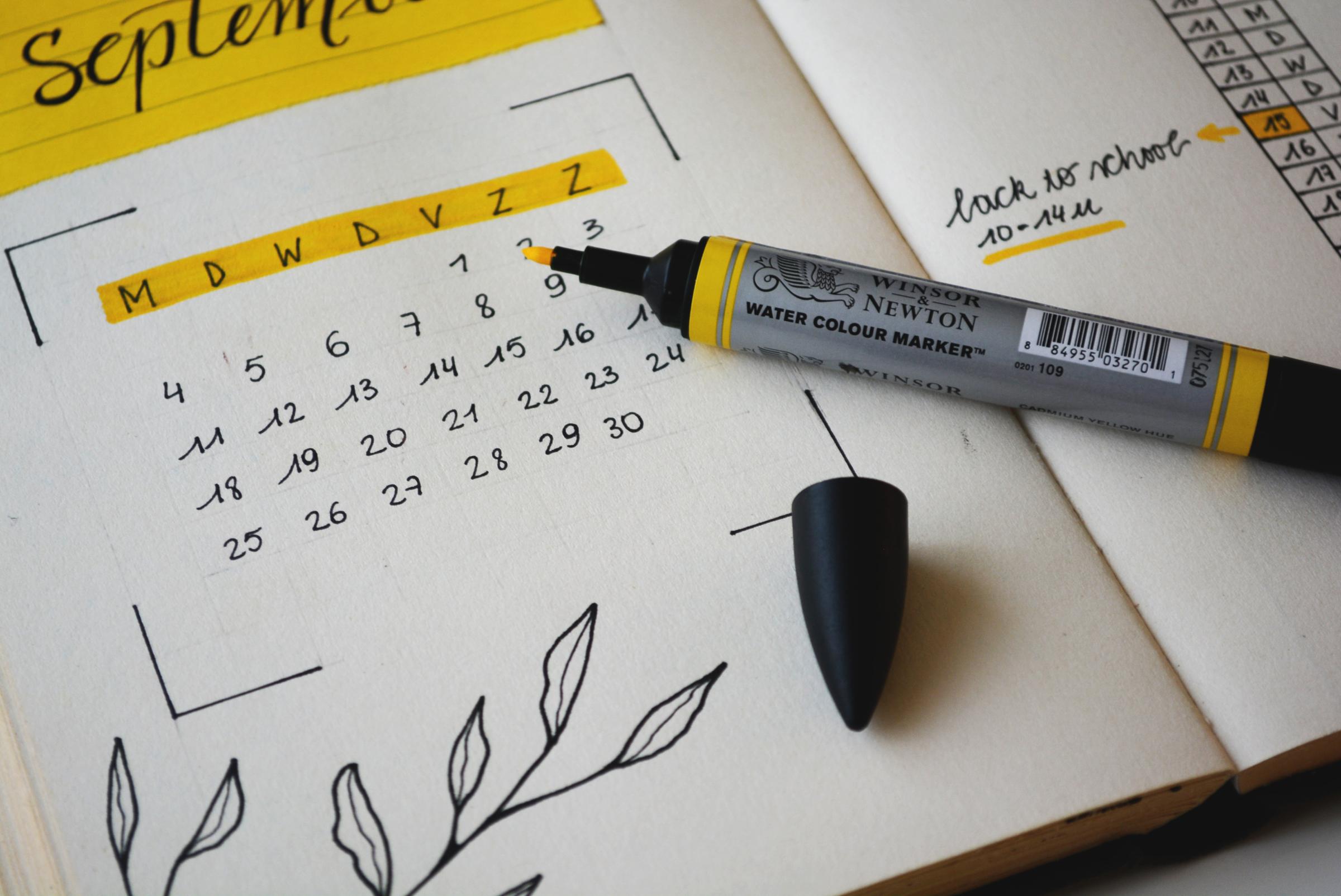
With so many opportunities for our students available this term, we are enjoying having our Assemblies packed with news from various events. I have been delighted with the number of offers from students to speak and share their news. Speaking at Assembly takes courage and I commend all students who step out of their comfort zones to step up to the microphone and talk to the Secondary School.
Participating in opportunities away from the classroom enriches learning in many ways but we encourage all students to use SEQTA to keep up to date with missed classwork. Students are also welcome to email teachers with queries about missed lessons. We are grateful for your support in helping your children keep up to date with their classes.
This week we have enjoyed having a variety of visitors come to GSG. The Tertiary Institutions Service Centre (TISC) was here on Monday, Academic Group on Wednesday and University Hall on Thursday. Providing opportunities for students to hear from agencies outside of school is valuable but it was a little unfortunate that all three groups chose this week to visit Albany! Nevertheless, we accommodated them all and I was impressed that students made time to attend these meetings.
Where students are struggling in our classrooms
Over the last two weeks, I have shared the themes that arose from the query about where students are struggling in our classrooms.
This week I explore the final theme about motivating those students who struggle to complete any work away from the classroom.
Motivating Students to Study
One of the most interesting features of the students at GSG who struggle to find the motivation to complete much work or study is that they generally express a desire to do well and achieve good marks and grades. An interesting conflict for us to ponder on!
When I met with our Curriculum Leaders this week, we shared strategies that have proved effective in different areas of the school.
Our Technologies team shared how their tasks are stored and presented in a consistent way, across all year groups and courses, so that students can access tasks easily. Our Arts team talked about students became more motivated to complete tasks when they found out that their work would be featured in the upcoming exhibition. Science showed us that they use engaging tasks to motivate students. Partnering with parents and families is a strategy that featured in many areas, particularly mathematics, where effective communication about expectations for particular tasks proved helpful.
In a more general way, we discussed how setting clear, small goals with firm boundaries and consequences can help motivate students; if our teenagers feel that they know exactly what to do and that they will not feel overwhelmed, they are more likely to participate.
How can families support these strategies? Providing a space conducive to study is always helpful. While somewhere quiet away from a bedroom is ideal, the space also needs to be inviting and somewhere your child is happy to be in.
Often, the thought of tackling some homework or study is worse than the actual task, as with many things in life, so supporting your child to make a move towards their study area can be more powerful than you might expect. Placing an appropriate snack and drink on the desk, making sure there is a pencil ready, little details can make starting homework more enticing.
For some children, routine is key and creating a habit of homework and study can be effective. Other students like to look at a visual planner of their week or fortnight and map out where study slots might fit into their week around training and part-time jobs.
Conversation around homework can also prove helpful. Rather than asking whether your child has any homework, perhaps ask which task they plan to start with that evening. Or which task they think they will enjoy most. A positive slant can go a long way!
If you are struggling to motivate your child to study at home or work more productively in class, please contact teachers, Homeroom teachers and Heads of House for more targeted advice.
Mrs Victoria Turnor | Head of Secondary
World’s Greatest Shave and Crazy Hair Day
This year we have another amazing group of eleven Year Twelves, and Mr Irving, cutting or shaving their hair as part of the World’s Greatest Shave on the 10 May. They are raising money for blood cancer research and your support would be greatly appreciated.
Donations to the team can be made through this link: https://secure.leukaemiafoundation.org.au/registrant/TeamFundraisingPage
Friday of Week Four is also Crazy Hair Day, which supports cancer research as well. On the day, students are encouraged to wear their most colourful (non-permanent) or creative hairstyle to school and bring a gold coin donation.
Thank you.
Year Twelve Leaders
Values and Christian Service
Student Reflections
This week in peer support Wilson, we had our first official session dedicated to meeting the Year Sevens. Firstly, we chose to split up into three small groups so we could get to know each other individually. Each group started off with a simple what’s your name and what’s your favourite thing to do sort of questions before getting into quick and fun team games.
We had the Year Sevens rotate through each station, so they got to meet all of us and experience a range of games including cross the lava river, celebrity heads, and actions detective. At the end we all came together collectively as a house and played the active memory game “21”. It was a great way to learn more about the younger year groups and we are all looking forward to seeing them again next week.
Amy Medway | Year Eleven student (Wilson)
This term a willing group of Baudin Year Elevens have chosen to participate and lead the Peer Support Program. As Year Elevens, we aim to build relationships with the Year Sevens and be a familiar face within the school.
Our first peer support session began this week with a few introductory games as well as icebreakers to get to know each other better. Some highlights included wink murder, silent ball and colour match where students were told a colour and body part and expected to match the two. For example, yellow and left ear.
We had many creative Year Sevens using each other's shoes, the posters and of course stationery. Our group of Baudin leaders for peer support this year include Angus, Max, Josh, Connor, Claire, Jocelyn, Sophie and Mariella.
Mariella Somerscales and Connor Newman | Year Eleven students (Baudin)
This week in VACS (Values and Christian Service) was the first week of peer support for the Year Sevens and a bunch of Year Eleven students.
In Mokare, we focused on getting to know one another and learning each other's names. We did this by playing a variety of games and creating conversations within the group.
Peer support is a time for the Year Sevens who are new to high school to get to know people older than them and to form relationships outside of their year group. This week's highlight was wink murder and silent ball.
Chelsea Pearson | Year Eleven student (Mokare)
Our first week of peer support with the Camfield Year Sevens was a great start to this program. We began by getting to know each other with a name-memory game which proved more difficult than we thought, but the group was very supportive of each other, and we successfully finished learning everyone’s names and their hobbies.
Silent ball was a challenge for us Year Elevens because the Year Sevens were just too good for us to compete against!
Lots of laughter and fun came from this valuable session of getting to know each other, and I’m sure we’re all looking forward to next week.
Iris Miller | Year Eleven student (Camfield)

